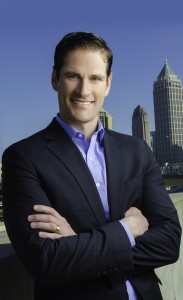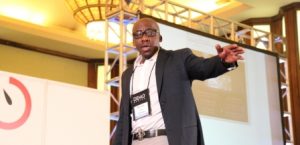 Brent is the CEO of Rev.io, a billing and back-office SaaS company dedicated to solving the mission-critical problems of providers with recurring and metered service offerings. In his short time at the helm, the Rev.io team has acquired high-profile clients and accumulated numerous industry awards, including One of the Nation’s Best and Brightest Companies to Work For and One of the Best Workplaces for Women.
Brent is the CEO of Rev.io, a billing and back-office SaaS company dedicated to solving the mission-critical problems of providers with recurring and metered service offerings. In his short time at the helm, the Rev.io team has acquired high-profile clients and accumulated numerous industry awards, including One of the Nation’s Best and Brightest Companies to Work For and One of the Best Workplaces for Women.
I worked with Brent at Cbeyond where I witnessed him lead with an unparalleled work ethic. This inspired us to not only pursue ambitious objectives but crush them. If after reading his interview below you aren’t as fired up as me to “get after it” and crush your goals, you may want to check your pulse. 
1. Briefly describe how your background and share the most exciting or rewarding aspect of what you do.
I studied Business and Finance at Elon University in North Carolina. Elon prepared me for a great start to a career in business. A degree, however, just gets you the interview. Elon is a smaller school with a lot of engagement and accountability, so I couldn’t just show up and pass the class. That discipline translated well for me in the professional world. You have to show up prepared or expect to fail.
After graduation, I moved to Atlanta and started at Cbeyond. I didn’t know anyone. I took the opportunity because it was a true meritocracy, and that appealed to me. The harder I worked, the more I could earn. I went door to door to 50 businesses and made 40 phone calls a day. Honestly, I was a terrible salesperson, but I worked hard. I learned about failure and the importance of setting goals.
After six months, I was on the verge of being fired and thought about giving up on the job. But on the last day of the month, I achieved my quota in a single day. This taught me a lot about perseverance and hard work. I never missed my quota again and was the number one sales person in the company during that period. I would later learn that embedded in that experience was the idea that you should fail forward. Failure is an extremely formative, humbling and necessary part of success. Expect it and use it to move forward.
The company grew fast and I was promoted to Vice President at the age of 26. I helped the company open multiple offices across the country. I lacked the experience for the job, but the company believed in me and I was willing to do what was needed to succeed. I believe if you want something bad enough you can obtain it. You must plan, adapt, evolve, learn, improve and push through until it is achieved. I’ve come to believe we can always adapt to our situations. We can always make ourselves better. Also, and equally important, get clarity on what it is you want to accomplish and then build your plans around it. Present those plans to other people, be open to changing it, keep adapting, fine tuning, and making it better, but push through the challenges.
 As CEO of Rev.io, I have the best team that I have ever worked with in my career. They are the most talented, transparent, and ultra-authentic group of people I have known professionally. We are completely aligned and going in the same direction. We have problems but we are always working to solve them together. That authenticity and teamwork translate directly into our software and service to our clients. It is so humbling to lead a team that is so focused on helping clients grow in ways they wouldn’t have otherwise been enabled to do. We obsess over providing innovative solutions and extraordinary service. Our team, our service, and our technology come together to power our customer’s business. We grow by being better for our client.
As CEO of Rev.io, I have the best team that I have ever worked with in my career. They are the most talented, transparent, and ultra-authentic group of people I have known professionally. We are completely aligned and going in the same direction. We have problems but we are always working to solve them together. That authenticity and teamwork translate directly into our software and service to our clients. It is so humbling to lead a team that is so focused on helping clients grow in ways they wouldn’t have otherwise been enabled to do. We obsess over providing innovative solutions and extraordinary service. Our team, our service, and our technology come together to power our customer’s business. We grow by being better for our client.
2. Flashback and then fast forward to the present, what has surprised you the most about advancing in your career? What advice do you have for others looking to take a similar path? And is there something you could have done differently to get to where you are quicker?
What has surprised me the most is that if you are humble, and seek help, you will find it very easily. Also, you have to be your authentic self. I was encouraged by the fact that people were willing to help, you just have to ask.
The other surprise was that most people who are wildly successful earned every bit of it. It is a perception that you get lucky, but not really. You can be as successful as you want to be. Success is subjective and it’s based on how you define it. For me, success is the ability to fulfill what you truly want in life. That could be different for two people, but for most, it is likely to be hard, which is why people don’t get there as often as they imagine.
My advice is that you have to do what others aren’t willing to do. Also, never ever think you are bigger than your company, even if you are the CEO. The reality is that if it is a company you really want to be a part of, they likely don’t need you. Entitled people are miserable and people don’t like miserable people.
What I could have done differently was network more often. Networking is key, just go out and network. There are so many advantages of knowing the right people and tapping into your network.
3. What is your unfair advantage and how has it contributed to your success?
I have great mentors in business and my personal life that have taught me about being a leader. It helps to have great examples. I personally don’t feel like I have any unique qualities, I just know that I have had great examples to emulate. There are always people smarter, better or wiser than you, so surround yourself with them. I’ve also learned how to put my people first and always challenge them to be their best. I make sure to put my team first and I am motivated to do that, every single day.
4. Reflect on all of the key sacrifices you’ve had to make to get to where you are today. Which would you say was the most pivotal and why?
Do what others are not willing to do. Move across geographies, industries and sacrifice short-term finances. An inflection point in my career was to gain executive experience that required taking an opportunity in a totally different industry. It was a big risk, but within 2 years I learned how to lead my current company. I learned what to do and not do that shape my company culture every day. Lastly, you have to be willing to sacrifice short-term finances for long-term growth. Often times people are caught up on how much money they are going to make in the short-term and forget the long-term possibilities. In fact, if I wanted to make more money in the short-term, I would not be a CEO now.
5. What is the best piece of actionable advice you’ve received that continue to be a source of inspiration in good times and bad times?
I’ve received a lot of great advice over the years. There are a few that stand out which have been particularly helpful for me:
- Without my faith and family, none of this would matter
- You need steady goals. Goals help you say “No” to things that may seem important but are distractions. To truly make it, you have to be able to say “No” to some opportunities.
- Get a mentor and network yourself.
- Learn something new every day and keep getting better.
- Take risks. My goals helped me prioritize and take the right risks. Taking risk is about knowing what you want and going after it.
Connect with Brent on LinkedIn
Connect with Rev.io
Biography
Brent is a technology entrepreneur and leader. Brent has a knack for attracting ethical people who have unique strengths and similar ambitions. He has fun providing exceptional value to customers and building a winning culture, while continuously learning about business and leadership. He lives in Atlanta with his wife, Whitney, and two kids, Presley and Kolson.
#Donezo!







